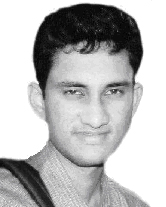India

For over 5000 years, Physics has been part of Indian education in some form. Since 1947, after independence, the Government of India has taken special interest in the field of Physics and has devoted more and more funds towards research. There are over 250 universities and over 10,000 colleges in India. In recent years, the universities are aiming towards world-class standards and have also made significant strides in higher and technical education. Any student interested in Physics will almost certainly find an institution offering a quality program in the chosen area of specialization.
The recent boom of information technology in India has helped in providing large digital libraries and infrastructure to several institutions offering undergraduate and graduate programs in Physics. Some of the well-known institutions for pursuing a masters in Physics and related areas are the Indian Institute of Technology, Indian Institute of Science (for Integrated PhD), Institute of Technology - Banaras Hindu University, Indian School Of Mines – Dhanbad and Jawaharlal Nehru University. For PhD and research, some of the world-class institutions are the Indian Institute of Science, IIT, Bhabha Atomic Research Centre and Tata Institute of Fundamental Research. These institutions offer students opportunities to perform research in virtually all of the major fields of physics research practiced today.
The institutions, in general, train physicists with hands-on experience on Engineering and technical skills in addition to offering them one of the most rigorous Physics curricula in the world. Both theoretical and applied physics have been given importance. The programs provide a wide perspective and training to students in their chosen field. To get admissions into the institutions one has to clear the competitive admission examinations that are conducted by the respective institutions. To pursue B.Tech and M.Sc degrees in any of the IITs one has to clear the competitive entrance exams JEE and JAM (Joint Admission for MSc) respectively. Generally, the Baccalaureate of Science with Physics major is a three year program while undergraduate engineering is a four year program. Physics is part of the curriculum for almost all undergraduate engineering disciplines and there are graduate programs for each major subdivision of Physics. The M.Sc and M. Tech degrees are generally 2 years in length.
Some of the Institutions offer a 5-year Dual Degree (Bachelors and Masters combination) program in all Engineering departments. That is, upon successful completion of the necessary academic requirements, a student is awarded two degrees: B.Tech of the parent department and M.Tech of the specialization within the parent department. A PhD may vary from 4 years to 10 years depending upon the field of study but on average students take about 5 years.
Course fees for undergraduate programs in most of the institutions vary from US $100 to $3000 per year, and for masters and PhD the course fees are about US $100 and $200 respectively per month. In many cases the institutions give stipends to students, hence making students pay virtually nothing as fees. Loans are also readily available. In general, government organizations like DST, AICTE, ISRO and UGC fund the majority of the institutional research while the Non-Government Organizations fund many industrial research opportunities.
The relationship between the student and supervisor varies depending upon the personalities involved. One may find both traditional and western styles of relationship in India. In recent years, there has been a considerable increase in the number of students who do international internships as part of the graduate program. Some students do part of their research in top institutions in the US, UK, Germany, Russia, Australia, Japan, etc. and are sponsored by their respective Indian institutions in most cases. Since India maintains friendly relationship with all the major countries of the world, student exchange programs and technology transfer have been considerably good. Each year about 100,000 students complete their graduate studies abroad; a significant number return to join faculties in Indian institutions, thus fostering an international climate.. Also the number of foreign professors visiting Indian institutions is increasing year by year.
The medium of instruction is English in most of the institutions and the overseas students are always encouraged to study in India. Special reservations for international students are also available in many institutions. Few institutions have the cutting edge of Sanskrit language and literature associated with it. In the major cities one will most certainly find coaching centers for foreign languages like French, German, Japanese, Russian, etc, and they help in teaching the respective natives to learn English and many other Indian languages.
In general, in India, it is easy for PhD recipients to find a satisfying position in universities and industry. It may be observed that many of the Indian institutions have focused more on national requirements than on international. It is one of the main reasons that Indian institutions, despite their quality infrastructure, still rank behind some of the US institutions. But these Indian institutions have taken very impressive steps to support the growing population. India, with its immense manpower and booming economy, is very likely to continue to promote an exponential growth in the quality of its research institutions. India may thus turn out to be one of the most desired destinations for higher education in the world in the near future, as India and her institutions believe in “Unity in diversity.”
Links:
Education in India
http://education.nic.in/
http://www.physlink.com/Directories/Departments/DisplayCountry.cfm?CountryVar=india
Some of physics societies of India:Astronomical Society Of India
http://www.prl.res.in/~asi/
Indian Space Research Organisation
http://www.isro.org/
Plasma Science Society of India
http://www.plasma.ernet.in/~pssi/

